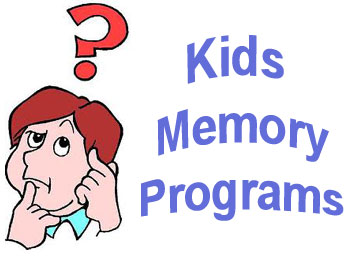 What is memory? What is memory?
Human memory is a complex activity of the brain that allows us to store information and retrieve it again when we need it. There are two distinct memory systems:
1. A system that keeps a record of our personal life experiences: this is usually called autobiographical memory.
2. A system that holds knowledge about the world: this is usually called semantic memory.
Because these two memory systems work in slightly different ways, it is possible for one system to work better than the other. For example, a child might have a good autobiographical memory and remember in detail everything about a holiday, but a poor semantic memory so failing to remember things that need to be learned in school. Both memory systems can store information from all our senses - vision, hearing, smell, taste, touch - but in semantic memory visual and auditory-verbal modes of information usually predominate, unless another mode was particularly important (e.g. a perfume maker would have a very well-developed semantic memory for odours).
Why do we forget some things?
Very few people appreciate that human memory is a system which is designed to forget information as well remember information. Generally, we only retain the information we need for as long as we need it, then it is forgotten. Why is this? The answer is quite simple. The human brain is constantly bombarded with huge amounts of information, and even though the information storage capacity of the human brain is very large, if we stored every single item of information that ever reached our senses from the moment we were born, our memory would probably be totally overloaded before we started school. The fact is: we simply do not need to retain most of the information we receive each day. We only need to retain some of that information and can safely forget the rest. The trick is to make sure that the information we do need is stored properly in memory ready for the time when we require it again.
We can hold a certain amount of information in memory for a short time provided we strive to keep it there (e.g. by thinking about it or rehearsing it to ourselves). This process is called short-term memory (or sometimes 'working memory' because we use this when working on any task, such as listening to a conversation, reading or doing mental arithmetic). But unless we also make an active effort to store that information in long-term memory in a semantic (i.e. meaningful) form, it will normally be forgotten very rapidly. Once in long-term memory, information is reasonably permanent. However, if we don't use that information we are likely to find it difficult to access when we need it, and if the information is not stored very efficiently, it will also be difficult to access.
When we say we have 'forgotten' some item of information what we really mean is either: (a) the information was never properly stored in long-term memory in the first place, or (b) the information has been stored in long-term memory but we can't find it because it has not been stored in an inefficient way and/or because we haven't used that information for ages.
Why do some people have better memory than other people?
People vary in the efficiency of their long-term memory. Some people have a good long-term memory and some a poor long-term memory. Like other cognitive skills, this is probably determined partly by heredity. But research has shown that most of the difference between people with good and poor memory can be attributed to the methods or strategies they use to learn that information in the first place. By developing appropriate memory strategies we automatically store information in a more organised and efficient way that makes it easier for us to locate when we need it. (This is a bit like always making sure we store things in sensible places in the home.)
Despite individual differences in memory, research indicates that in most people memory can be improved significantly by appropriate training. This does not mean that we can enlarge the storage capacity of our memory; what it means is that we can make our memory more efficient, so that it is more likely to absorb new information and hold that information in a way that makes it easy for us to find it again immediately we need it.
How can memory be improved?
In order to make an individual's memory more efficient we need to ensure four key things:
- Practice - the more often we do something, the more likely we are to remember it.
- Memory strategies - these are ways of processing information that will help you remember it better.
- Organisation - this ensures that information is stored in a more meaningful and well-organised way and which is easier for the brain to recall when needed.
- Understanding - if we understand information it is easier for us to remember, and if we understand how memory works, it is easier to make it work well for us personally.
Memory Booster helps the child to develop good memory strategies, to organise information efficiently, and to practice the skills necessary for effective learning and recall of information. |